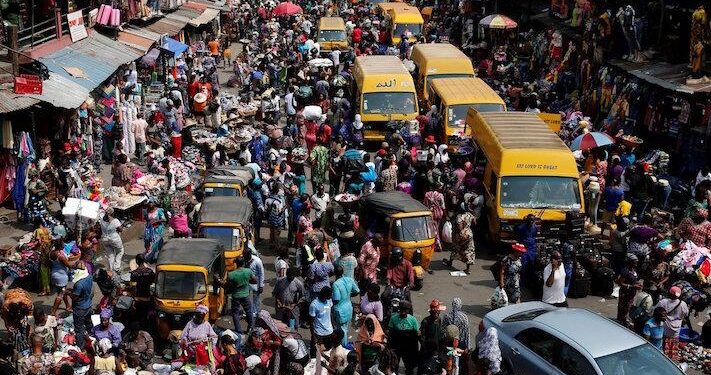$41bn Reserves vs Empty Pockets: When Will Relief Come For Nigerians?
On August 19, Nigeria’s foreign exchange (FX) reserves hit $41 billion, the highest in four years, according to data from the Central Bank of Nigeria (CBN). For economists and policymakers, this was a much-needed signal of stability after months of turbulence. For ordinary Nigerians, however, it sparked a familiar question: when will the numbers on paper begin to ease the burden of daily survival?
The reserves milestone is being hailed as a consequence of increasing foreign exchange inflows into the country, aided by improved oil production, stronger export earnings, and strategic CBN policies. Economists say these gains mark a turning point for Nigeria’s macroeconomic outlook after a series of painful but “necessary” reforms that left citizens reeling.
“The strong reserve position enhances Nigeria’s credit profile internationally, potentially leading to improved sovereign ratings and reduced borrowing costs,” explained Oluyemi Adeosun, chief economist at BusinessDay, in a recent piece.
“This creates a virtuous cycle where improved creditworthiness facilitates access to cheaper international financing for development projects.”
On the surface, this is good news. Yet in the markets, on Lagos streets, and across rural communities, such headlines are met with skepticism. Millions still feel trapped in a harsh economic reality that makes such statistics sound like government propaganda.
Despite the improved reserve position, easing inflation (which fell for the fourth consecutive month to 21.8% in July), and a relatively stable naira, households continue to struggle with high costs of transport, housing, school fees, food, and electricity.
A recent World Bank Poverty and Equity Brief underscores the disconnect. Rural poverty now stands at 76 percent, meaning three out of every four rural dwellers live below the poverty line. Nationally, poverty has climbed from 40 percent in 2018 to 46 percent in 2023.
For citizens like Adewole Olakunle, a Lagos-based entrepreneur, the numbers are simply not enough.
“Yes, I have seen several reports on increased foreign reserves, reduced inflation and others, but when will we start seeing the effects?” he asked. “It is true that prices of some staples like beans, Garri, and yam have dropped slightly, but transport, power, rent and many other things are still very expensive.”
Between stability and reality
Experts agree that the relationship between strong reserves and citizens’ welfare is not straightforward. The benefits are indirect, often delayed, and highly dependent on government choices.
“FX reserves reaching high levels means good news for Nigeria as it improves investor confidence; helps with credit rating and means that Nigeria is stable and capable of meeting its obligations,” explained Simon Samson, an economics lecturer. “Despite this, high reserves do not automatically translate to improved living standards for Nigerians because the authorities must be intentional about deploying better FX reserves for the people.”
According to Samson, who is the chief economist at ARKK Economics and Data Limited, the link between reserves and the cost of living is more complex than headlines suggest.
“There is a delay and indirect impact; if there is any at all; between healthy FX reserves on one hand and indicators like purchasing power, employment and food prices on the other hand. Some of these indicators are impacted more by structural factors than macroeconomic ones like reserves,” he said. “But for imported food for example, better reserves mean more stable currency and positive consumer and business confidence hence no price spikes or even lower prices.”
He further argued that high reserves also mean that Nigerians’ purchasing power is less likely to erode quickly, while the economy can attract more foreign direct investment (FDI), creating jobs in the process.
“With higher FX reserves comes general stability, capacity to meet up with obligations and improved outlook. These can be complimented in reducing poverty and inequality through the following: macroeconomic policies in directing better terms of loans to fund infrastructure; boosting productivity/production; lesser public borrowing hence not crowding out private borrowing with the concomitant private sector growth as well as opportunities for the population,” the Abuja-based lecturer explained.
From Abuja to the states
The benefits of higher reserves also extend beyond federal balance sheets. Adeosun, earlier quoted, noted that state and local governments could benefit directly.
“The stability in the foreign exchange market reduces inflationary pressures, which directly benefits state and local government budgets. Lower inflation means that budget allocations can deliver more value, enabling better service delivery to citizens. The improved external sector also attracts foreign direct investment (FDI), which often flows to states with strategic advantages,” he noted.
In other words, when inflation eases, state governments’ naira allocations stretch further, funding schools, healthcare, and infrastructure with greater efficiency. Yet, these benefits hinge on governance and how deliberately leaders at every level deploy the resources at their disposal.
The missing link
For now, the numbers tell a story of cautious optimism, while the people tell a story of survival. Between the two lies the task of governance: to bridge the gap between macroeconomic stability and microeconomic realities.
“The window of opportunity is open, but it requires deliberate action to ensure that this positive momentum translates into tangible improvements in the lives of ordinary Nigerians,” Adeosun concluded.
Until then, Nigeria’s $41 billion FX reserves remain an impressive statistic, but for many, it is just another government propaganda.








